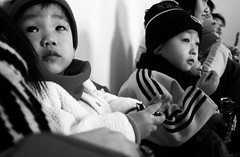Difference between revisions of "Chinese Adoption Background"
| Line 1: | Line 1: | ||
| + | {{#eimage:https://farm1.staticflickr.com/118/314004999_ecab284f76_m.jpg|410x579px|thumb|'''Orphan in [[China]].'''<BR/>Source: flickr.com.}} | ||
| + | |||
The world's fourth largest country (after, [[Russia]], [[Canada]], and the U.S.), [[China]] is the nation most people turn to when they decide [[International Adoption|international adoption]] is the right way to build their family. From 1983 to 2003, Americans [[adopted]] 40,496 children from [[China]]. | The world's fourth largest country (after, [[Russia]], [[Canada]], and the U.S.), [[China]] is the nation most people turn to when they decide [[International Adoption|international adoption]] is the right way to build their family. From 1983 to 2003, Americans [[adopted]] 40,496 children from [[China]]. | ||
Revision as of 19:43, 14 July 2014
The world's fourth largest country (after, Russia, Canada, and the U.S.), China is the nation most people turn to when they decide international adoption is the right way to build their family. From 1983 to 2003, Americans adopted 40,496 children from China.
China is a nation possessing a long and fascinating history – from being home to the most advanced bronze working civilization of the ancient world, to the invention of gunpowder and fireworks, to the famous (and infamous) such as Confucius, Kublai Khan, and Marco Polo, to the formation of the People’s Republic - the history of China is indeed impressive. However, the part of this impressive history that is most important to parents investigating international adoption is their One Child Policy.
First, a bit of background to understand how the One Child Policy came about: In the 1950s, Mao Tse-Tung urged his people to have lots of children to strengthen the country. The population growth from this edict led the government in the 1970s to be worried that China would be unable to feed her citizens. So, the Chinese government implemented the One Child Policy in 1979. The goal of this policy was to keep China's population below 1.3 billion by the year 2000. Today, China is home to over 1.2 billion people. Couples who violate the One Child Policy are subject to fines (equal to three years’ salary!), community ostracism, and even jail time.
Baby boys are more valued in Chinese society than are baby girls because boys carry on the ancestral name, inheritance laws pass property on to sons, and sons are responsible for taking care of aged parents. Because of this many couples will abandon a baby girl. Hundreds of thousands of baby girls are abandoned every year in China.
The babies are abandoned in public places (such as busy streets, railway stations, and in front of public buildings) so they will be found quickly. The babies are abandoned as infants – usually when they are only a few days old. In addition to little girls, handicapped babies and sick babies (both boys and girls) are also abandoned because most parents in China don’t have the money to provide for their special needs. Once found, the abandoned babies are given a medical exam and then taken to orphanages.
Chinese authorities are extremely sensitive about the intrusion of foreign entities. Adoption is also a sensitive subject in China. It is therefore advisable for any person interested in adopting a child from China to act with discretion and decorum. High profile attention to adoption in China could curtail or eliminate altogether adoption of Chinese children by persons from countries that have caused adoption to become the subject of public attention.
